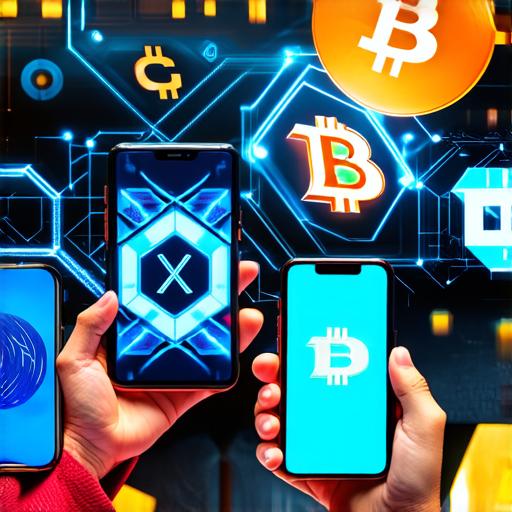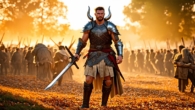
Who purchases NFTs and what are their reasons
Introduction:
Non-Fungible Tokens (NFTs) have been gaining popularity since their inception in 2017. They are unique digital assets that represent ownership of items such as art, music, and other collectibles. NFTs can be bought, sold, and traded like traditional assets.
Who Purchases NFTs?
NFTs have a diverse range of buyers, including individuals, collectors, investors, and businesses. Let’s take a closer look at each group.
Individuals:
Individuals are the largest group of NFT buyers. They purchase NFTs for various reasons such as personal interest, investment opportunities, and to own unique digital assets. For example, individuals can buy rare art pieces or limited-edition music albums as NFTs.
Collectors:
Collectors are another group of NFT buyers who have a keen interest in owning unique digital assets. They purchase NFTs such as rare art pieces, collectible cards, and limited-edition video games. NFTs provide a way for collectors to own items that were previously unavailable or extremely difficult to obtain.
Investors:
Investors are attracted to NFTs due to their potential for high returns. They purchase NFTs with the intention of selling them at a higher price than they paid. For example, Beeple’s “Everydays: All the World’s Moments (1993-2021)” sold as an NFT for $69 million in March 2021, making it one of the most expensive NFT sales to date.
Businesses:
Businesses are also starting to purchase NFTs for various reasons such as marketing, branding, and fundraising. For example, Coca-Cola launched an NFT campaign in 2021 where fans could buy NFTs that represented Coke bottles with unique designs. The company used the campaign to promote their brand and engage with customers.
Reasons for Purchasing NFTs
Now that we have a better understanding of who purchases NFTs, let’s take a closer look at why they do so.
Ownership:
NFTs provide ownership of unique digital assets that are stored securely on blockchain technology. This ensures the authenticity and value of the item. For example, owning an NFT art piece means that the owner has exclusive rights to use and sell it.
Rarity:
Many NFTs represent rare or limited-edition items such as collectible cards, art pieces, and music albums. The scarcity of these items creates a sense of exclusivity and value, making them highly desirable among collectors.
Investment:
NFTs have the potential for high returns, making them attractive to investors. The demand for NFTs is increasing rapidly, and this trend is expected to continue in the future.
Branding and marketing:
NFTs can be used as a way for businesses to promote their brand and engage with customers. For example, Coca-Cola’s NFT campaign in 2021 allowed fans to buy unique NFTs representing Coke bottles with exclusive designs. The campaign created buzz around the brand and engaged with customers.
Case Studies
Let’s take a closer look at some real-life examples of individuals, collectors, investors, and businesses purchasing NFTs and why.
Individuals:
Johnny Depp is an actor and musician who has recently launched his own collection of NFTs. His collection includes digital art pieces, music albums, and other exclusive items. The purpose of his collection is to allow fans to purchase unique items that are associated with him. Depp’s NFT collection is a way for him to engage with his fans and monetize his brand.
Collectors:
Arianna Grande is a pop star who recently launched her own collection of NFTs. Her collection includes digital art pieces, music videos, and other exclusive items. The purpose of her collection is to allow fans to purchase unique items that are associated with her. Grande’s NFT collection is a way for her to engage with her fans and monetize her brand.
Investors:
Andreessen Horowitz is an investor who has recently purchased an NFT representing the first tweet by Jack Dorsey for $2.9 million in March 2021. The purpose of his investment was to own a piece of history and potentially earn a return on his investment.
Businesses:
Coca-Cola is a multinational beverage company that has recently launched an NFT campaign. The campaign allows fans to buy unique NFTs representing Coke bottles with exclusive designs. The purpose of the campaign is to promote the brand and engage with customers. Coca-Cola’s NFT campaign is a way for the company to monetize its brand and connect with its customers.
FAQs
Q: Who purchases NFTs?
A: Individuals, collectors, investors, and businesses.
Q: What are some reasons why people purchase NFTs?
A: Ownership, rarity, investment, branding, and marketing.
Q: Can you provide examples of individuals, collectors, investors, and businesses purchasing NFTs?
A: Yes, we provided examples in the article.

Summary
NFTs are unique digital assets that represent ownership of items such as art, music, and other collectibles. They can be bought, sold, and traded like traditional assets. NFTs have a diverse range of buyers, including individuals, collectors, investors, and businesses. Individuals purchase NFTs for personal interest, investment opportunities, and to own unique digital assets. Collectors purchase NFTs such as rare art pieces, collectible cards, and limited-edition video games. Investors are attracted to NFTs due to their potential for high returns. Businesses use NFTs for marketing, branding, and fundraising. As the demand for NFTs continues to grow, we can expect to see more individuals, collectors, investors, and businesses purchasing NFTs in the future.







